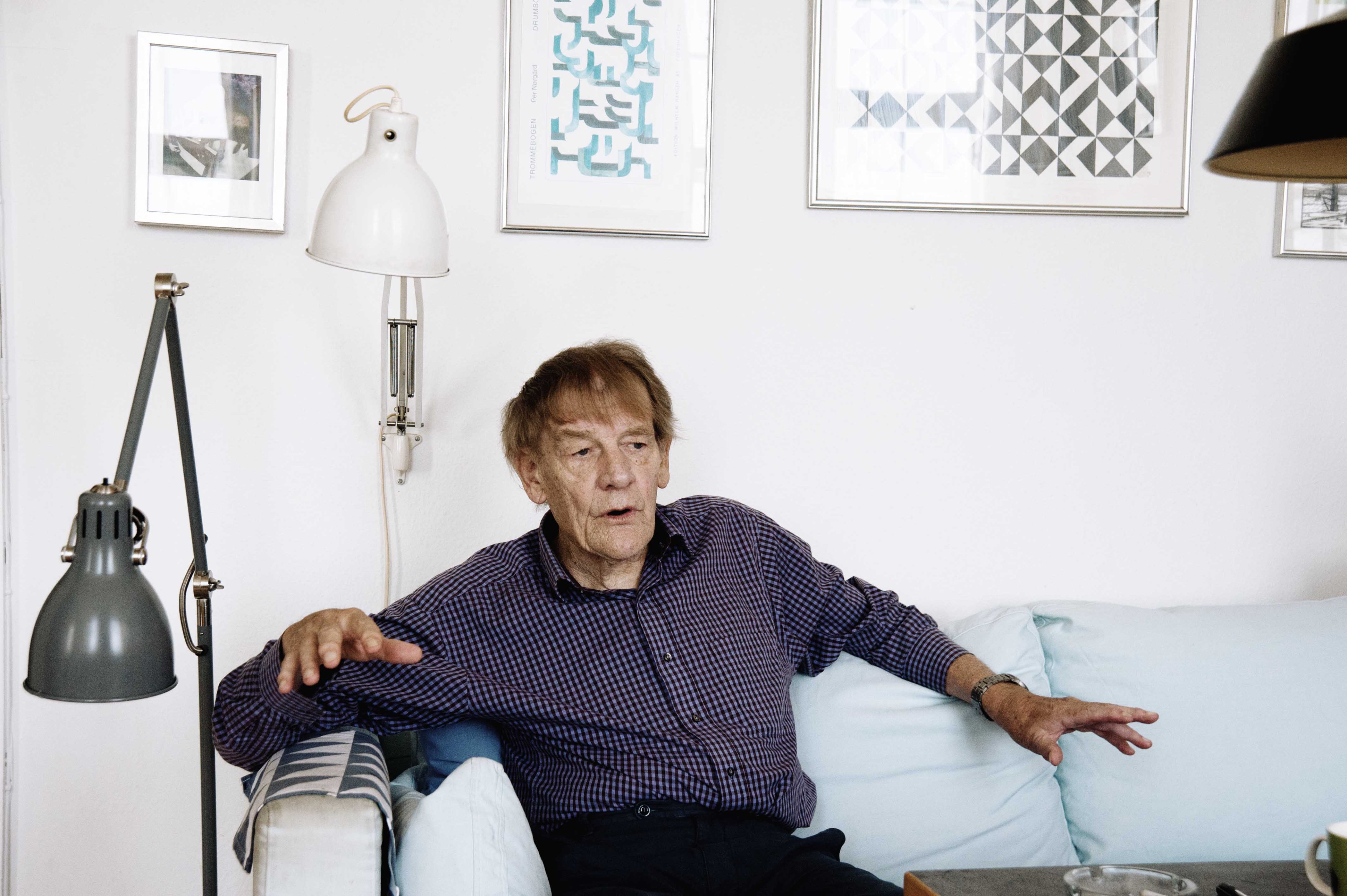Danish composer Per Norgard – whose death at the age of 92 was announced this morning – was a towering presence in European new music, and the shine-bright timbres and heady narrative drive of his eight symphonies posed crucial questions about what it meant to be a symphonist during the late 20th century.
In 2000 I was despatched to interview Norgard for a magazine and found a man as gentle and thoughtful as his music suggested he would be, with eyes that gleamed just like his woodwind writing. He had been in London to hear a performance of one his works – I forget which – but under discussion that afternoon was a new recording: the violin concerto he’d written in 1987, Helle Nacht. I’m listening to it again as I write this, and its luminous textures and the filigree of his violin writing could really be by nobody else. It’s well worth 25 minutes of your time.
The magic inside Norgard’s music derived from the compositional discipline he’d discovered while in Paris, where encounters with Messiaen, Boulez and Stockhausen had changed everything for him. But this was allied to a recognition that any composition system which exists to express music also exists to be broken. Helle Nacht, for example, like his Eighth Symphony – a disc of which the Vienna Philharmonic and Sakari Oramo released in 2014 – was pegged around what Norgard called his ‘infinity row’. ‘When I was going through my musical training,’ he explained to me, ‘Schoenberg’s serialism was seen as the most important method, but made me feel like a prisoner in a cell.’ The point of his ‘infinity row’, he continued, was to generate ‘an endless scale which relates to fractals in science.’
What matters is that Norgard constructed from the theory music that glowed and smiled and argued with itself – and went places. There are moments in the middle of the Eight Symphony when the ground gets yanked from under you abruptly, leaving your ears spiralling in free-fall through harmonies and melodies apparently revolving around their own axes. Plain melodic utterance one second; tangled complexity the next. To achieve complexity, Norgard took a deep dive inside his infinity row; for clarity he pulled back. This constant toing-and-froing gave his music its inner propulsion and impetus, but with narrative contours that had nothing to do with the symphonic models of old.
The neoclassicism that passed for modern composition back at home in Denmark had left him cold. But once he had returned from Paris, and immersed himself in the visionary, surreal work of the Swiss artist Adolf Wölfli, he chanced upon a lyricism that felt his own.
Norgard’s method served him well on the operatic stage – his 1983 opera Der göttliche Tovoli was both a portrait and love letter to Wölfli – and also lent itself to the rigours of composing chamber music. His Sixth String Quartet in particular – Tintinnabulary – written in 1986, scoops our existing understanding of the string quartet out from the inside. Yet Norgard’s music also managed to be non-threatening; his sounds were inscrutable but always lovely, issuing a kindly invitation to experience sound in new ways.
While we were discussing Helle Nacht, Norgard was keen to stress that his music also had a feminine side. The idea, he told me, of a concerto in which a soloist ‘battles’ against an orchestra, in the manner of a Tchaikovsky or Grieg, was an anathema to him. ‘In my concertos,’ he revealed, ‘I see the soloist as being the soul of my textures. In Helle Nacht I borrow two pieces of my own: an early choral setting and a section of my Second Piano Sonata – the choral setting feeling ‘feminine’ and the piano piece more masculine. It’s important that these two elements co-exist without being in conflict – by putting them together there emerges the inference of a ‘third’ melody.’
He went on to explain that his music shunned conflict because of his memories of the war: ‘a world of violence and heavy marching music. I felt very uncomfortable in that environment and that is why it’s important to me that the masculine and feminine side of my pieces are equal.’
Norgard leaves an immense and important legacy, curious in a way for a man who was so instinctively modest and unassuming. ‘You don’t become a composer to furnish the music with more music – there is enough already,’ he said as we wrapped up our interview. ‘But I found things that were lacking in music, and wrote what I wanted to hear in the hope that other people might agree. That is how I’ve made my contribution.’







Comments